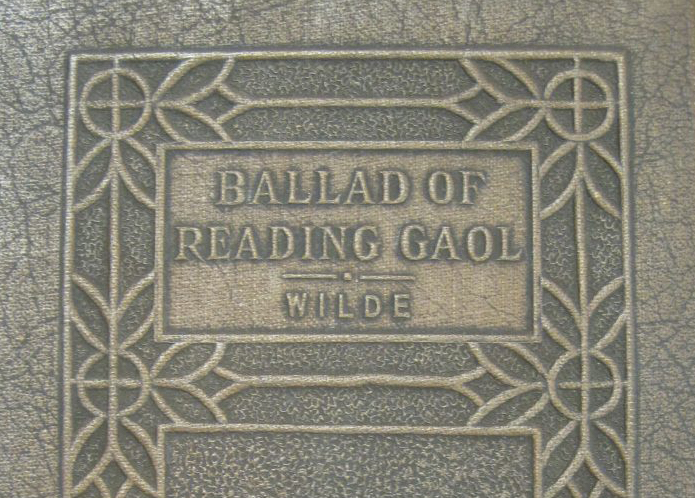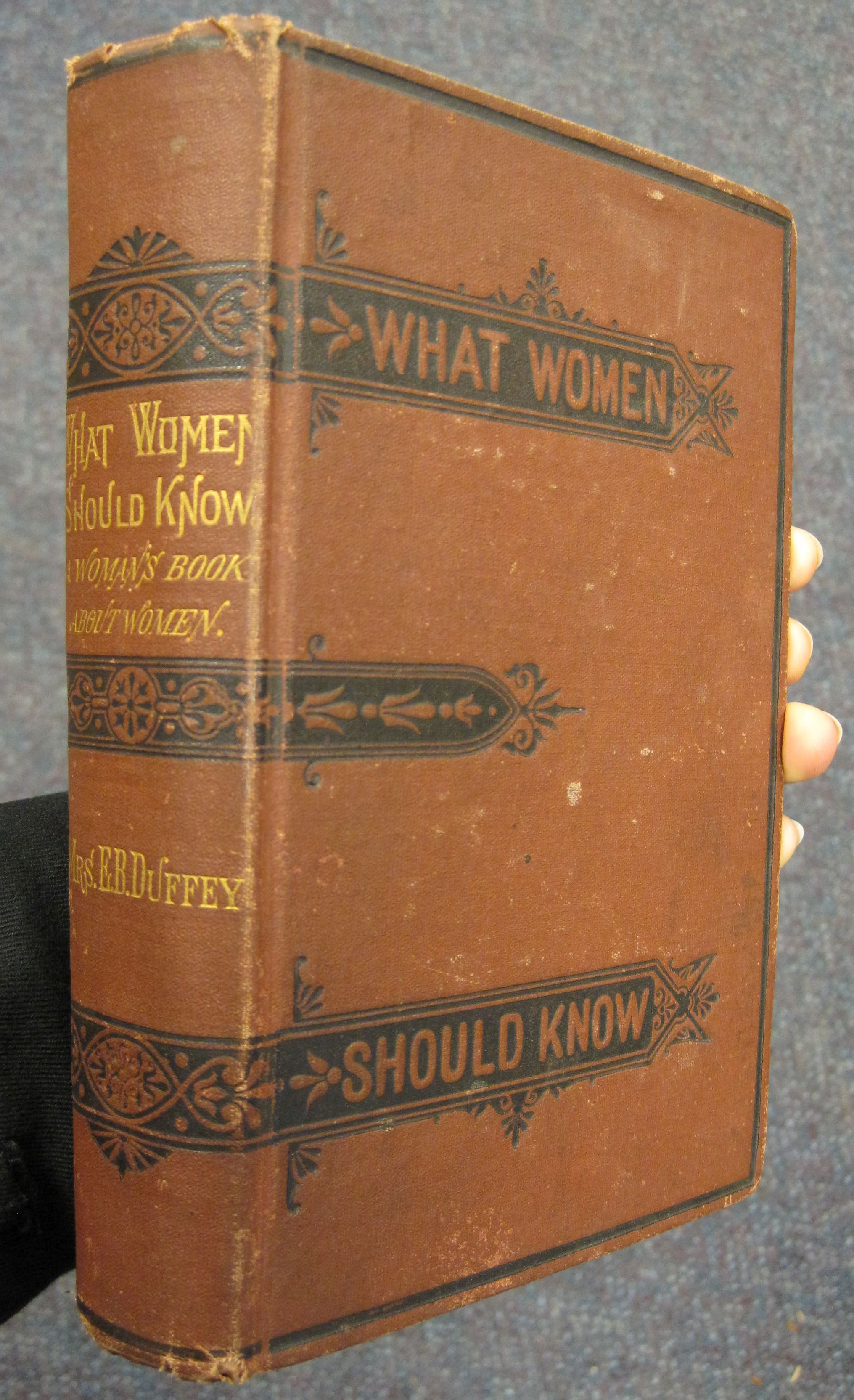Claire Peterson: a poet, a dancer, a thinker, and, for the past three years, Rare Books’s student assistant. Next month, she will add “SLU graduate,” to this list, earning a degree in English, Spanish, and International Studies. (Congratulations, Claire! Life in 307 will be duller without your positive energy, sense of humor, and inquisitive mind, but we can’t wait to see where you go from here!)

First published in 1898 under the alias C. 3. 3. (for cell block C, landing 3, cell 3), The Ballad of Reading Gaol is a poem Oscar Wilde wrote in exile after he was sentenced to hard labor for sodomy.
Indignant about the injustices and inhumane conditions of the prison, Wilde tells the story of C.T.W., the prisoner to whom the book is dedicated. The poem opens with the image of the man, who “did not wear his scarlet coat, / For blood and wine are red.” The man is found with the body of his murdered wife, “And blood and wine were on his hands.” Declaring that “all men kill the thing they love,” the speaker identifies with C.T.W. and metaphorizes the despicable conditions of the prison: “A prison wall was round us both, / Two outcast men we were: / The world had thrust us from its heart, / And God from out His care.”
The format of SLU’s copy, printed around 1910 by Barse & Hopkins in New York, and its subdued, brown cloth publisher’s binding, results in an elegant book of deep melancholic indignance. The material object is a reflection of the work’s intellectual content, and the book itself is a testament to the power of poetry to witness. A manifestation of mourning, the poem concludes with the man’s execution on July 7th, 1896 and his fellow inmates’ somber commemoration. The work’s poetic resonance is achieved in the speaker and subject’s position on the margin: “For his mourner will be outcast men, / And outcasts always mourn.”

 by
by 




